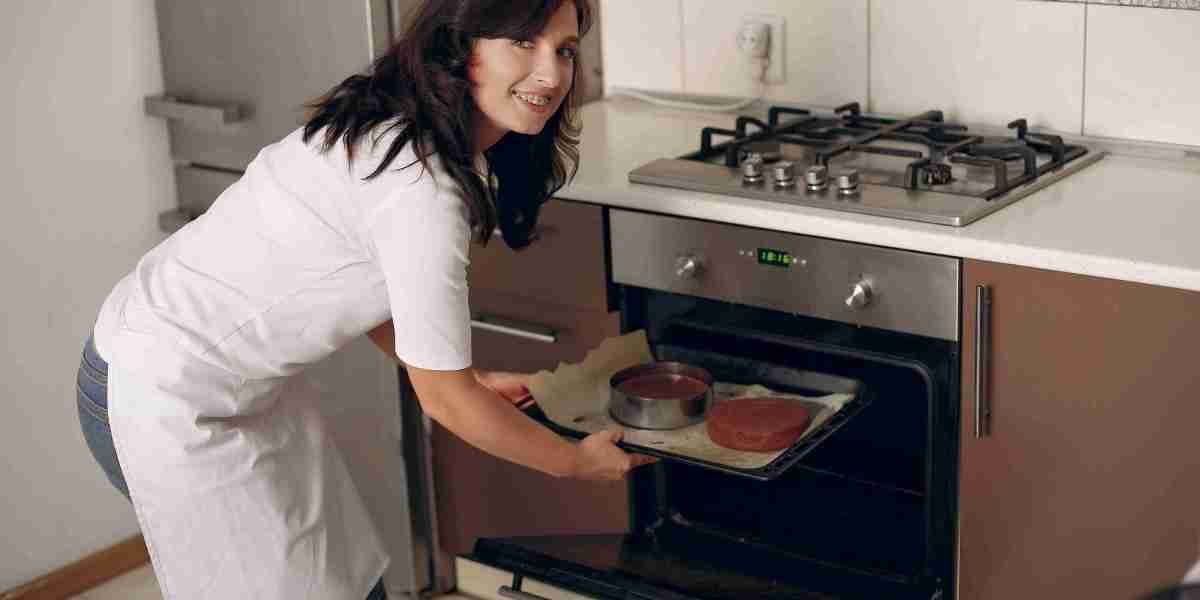The Rise of Integrated Cookers and Hobs: A Comprehensive Guide
In the modern kitchen, efficiency, style, and space optimization are crucial factors to consider for property owners and aiming chefs alike. Among the most substantial trends in kitchen design is the increasing popularity of integrated cookers and hobs. These appliances not just improve the cooking experience however also elevate the looks of the kitchen space. This article checks out the characteristics, benefits, functions, and considerations surrounding integrated cookers and hobs, providing readers with a comprehensive understanding of their advantages.
What Are Integrated Cookers and Hobs?
Integrated cookers and hobs refer to cooking appliances that are built into the kitchen cabinetry, offering a smooth appearance and taking full advantage of using space. Integrated appliances are created to mix with the aesthetic of the kitchen rather than standing apart like conventional designs.
Types of Integrated Cookers and Hobs
Generally, integrated cooking appliances include:
- Integrated Hobs: These are cooktops that fit flush into the kitchen countertop. They can be gas, Cookology 60cm Built-in Electric Fan Oven - Reliable Cooking, induction, or a combination of these technologies.
- Integrated cooker And Hob Ovens: built in electric oven straight into the cabinetry, integrated ovens integrated can come as single, AEG SurroundCook Double Oven - 61L Capacity, or multifunctional designs, offering diverse cooking capabilities.
- Combination Units: Some designs combine an oven and hob into a single home appliance, offering a compact solution for smaller kitchens.
Advantages of Integrated Cookers and Hobs
1. Space Optimization
Integrated cookers and hobs are ideal for small kitchen locations. By embedding the cooking appliances into cabinetry, house owners can use their kitchen area more efficiently, leaving more space for meal preparation and movement.
2. Aesthetic Appeal
These appliances offer a sleek and contemporary aim to the kitchen. The capability to select surfaces and integrate them into the surrounding cabinetry creates a unified design that boosts the overall look of the kitchen.
3. Improved Functionality
Integrated cookers and hobs frequently come with sophisticated innovation features, such as wise controls, timers, and cooking presets, enhancing user experience and enabling efficient cooking.
4. Boosted Safety
Lots of integrated hobs include precaution such as child locks and automated shut-off functions. This makes them much safer than conventional freestanding models, especially in homes with kids.
5. Increased Resale Value
Modern homes with integrated appliances often attract greater resale worths. Prospective buyers look for sleek designs and modern-day benefits, making integrated cooks and hobs a smart financial investment.
Features to Consider When Choosing Integrated Cookers and Hobs
When selecting integrated cookers and hobs, several features should be taken into account:
1. Cooking Technology
- Induction: Provides fast and efficient cooking, easy to clean, and provides precise temperature control.
- Gas: Offers standard cooking benefits with instantaneous heat but requires sufficient ventilation.
- Electric: Provides constant heat and is offered in different styles.
2. Size and Configuration
- Oven Capacity: Should suffice for the family's cooking needs.
- Hob Size: Depending on the variety of burners/vessels needed for synchronised cooking.
3. Control Mechanisms
- Touch Controls: Provide a sleek look and ease of cleaning.
- Knob Controls: Offer tactile feedback and are user-friendly.
4. Finish and Style
Integrated cookers and hobs come in various finishes, consisting of stainless-steel, black glass, and even customizable options to match cabinets.
5. Energy Efficiency
Choose energy-efficient designs that can minimize energy expenses and lower ecological impact.
Maintenance and Care
To keep the efficiency and durability of integrated cookers and hobs, regular maintenance is crucial:
- Clean the surfaces: Regularly wipe down the hob and oven surface areas to prevent residue build-up.
- Inspect seals and gaskets: Ensure that oven seals are undamaged for effective cooking.
- Service regularly: Schedule professional maintenance to keep the appliances in leading shape.
FAQs
1. What is the difference in between built-in and integrated cookers?
Response: Hisense Extra Large Built-In Electric Double Oven cookers are designed to be installed within kitchen cabinetry, whereas integrated cookers are created to flawlessly blend with the kitchen cabinetry for a more cohesive look.
2. Are integrated appliances more costly?
Response: Generally, integrated appliances may have a greater upfront cost compared to freestanding units since of their design and the setup requirements. However, they can offer long-lasting cost savings in energy performance.
3. Can I install integrated cookers and hobs myself?
Answer: While some property owners might have the ability to handle the setup themselves, hiring an expert is suggested to guarantee correct fit and function, especially for gas appliances.
4. Are integrated cookers and hobs simpler to clean up?
Answer: Integrated hobs typically have less crevices, making them much easier to clean up. Nevertheless, the particular cleansing requirements will depend upon the materials utilized in the device.

5. What should I examine before purchasing?
Answer: Check the size of your kitchen area, cooking needs, energy efficiency scores, and compatibility with existing kitchen cabinetry.
Integrated cookers and hobs are becoming increasingly favored in contemporary cooking areas, integrating performance with aesthetic appeal. By comprehending their advantages, functions, and maintenance needs, property owners can make informed decisions when picking the ideal appliances for their cooking spaces. As trends in kitchen design continue to progress, integrated cooking services will likely remain at the forefront of home innovation, guaranteeing both usefulness and design.







